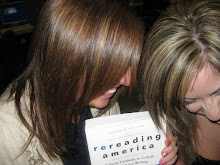"The Roots Of Debate In Education" In reference to your last question, I do believe that Tannen Moves beyond simply arguing a point in this essay. She actually does cause you to engage in a higher order of critical thinking. The first example i found to be true was in the section, Sharing Time: early Training in School; in this section she tells a story about The boy who had been given the volcanic rock by his mother. Tannen makes it clear that the teacher was trying to enforce formal rather than recreational knowledge. However, I have to argue the fact that yes this observation may be present, but Tannen can't relate the teachers behavior to question the child's object in a formal/ educational matter, but it could also could be due to a natural curiosity. It seems any time someone is acting as a communicator, we as the listeners engage in asking questions. We as society want to know all the facts, not just the ones presented. Point being, I don't believe that it is an educational influence to be taught to speak in a focused explicit way, i believe that is part of a role society places on us.
I enjoyed reading the section, Believing as Thinking; It went well with our lesson in class last week, when we dealt with the court case. By having us split into groups and tell us what part of the case we were for or against begun to open up ways for us to play the believing game. We had to use different methods to come up with ideas and facts that supported the case we were arguing. I agree with Tannen, she explains in a more in depth manner that we do shut out ideas or arguments that we don't agree with. We sometimes tend to be hard headed and not see all sides or points of views to an argument.
Subscribe to:
Post Comments (Atom)

No comments:
Post a Comment